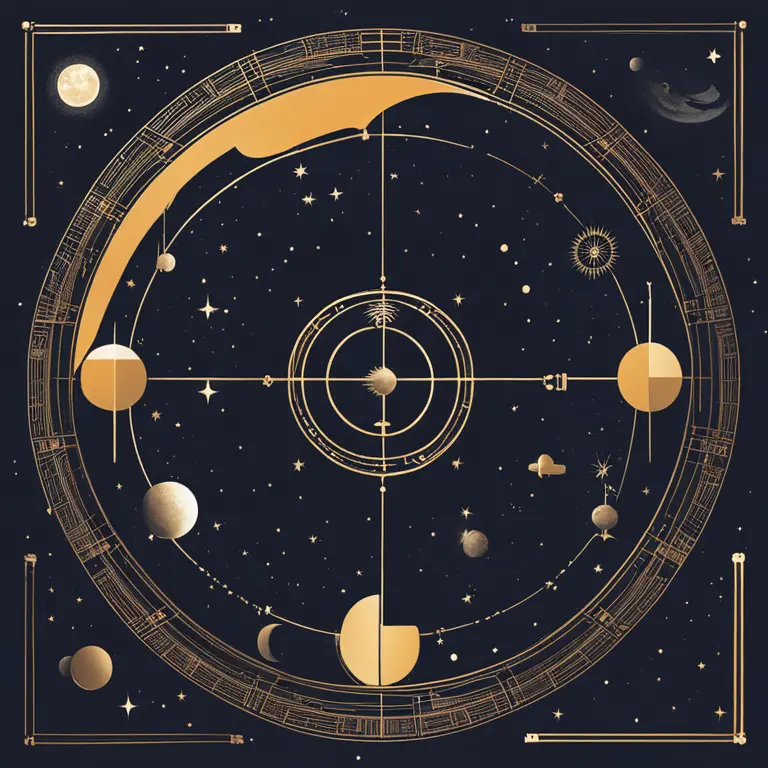
The Distinct Realms of Astrology and Astronomy
Dive into the clear distinctions between astrology and astronomy, two fields often mistaken for one another yet fundamentally different in practice and purpose.
article by Priya Deshmukh
The Historical Intersection
The journey to discern the difference between astrology and astronomy begins with their intertwined history. Long ago, these two disciplines were not seen as separate fields but were unified in their quest to unravel the mysteries of the night sky. Ancient civilizations watched celestial movements, seeking understanding about timekeeping, navigation, and the divine. It was not until the Age of Enlightenment that empirical science branched out, laying the foundation for modern astronomy, while astrology retained its mystical attributes.

Astronomy: The Scientific Study
Astronomy is the scientific study of everything beyond Earth's atmosphere. Astronomers scrutinize the universe's constituents—from planets and stars to galaxies and black holes—using principles of physics and mathematics. As of 2024, the field has advanced through the James Webb Space Telescope, capturing unprecedented cosmic images, and the increasing use of AI in data analysis, both enhancing our comprehension of the cosmos.

Astrology: The Interpretative Art
Astrology, conversely, is an interpretive art that examines the influence celestial bodies may have on human affairs and natural phenomena. Astrologists cast horoscopes, interpreting planetary positions at the time of birth to infer personality traits and predict life events. With current trends focusing on personal growth and an increased appetite for existential meaning, astrology continues to thrive in popular culture.

Methods of Practice
The methodology also sets them apart. Astronomy utilizes telescopes, spectroscopy, and satellite technology to gather empirical data. These tools have evolved significantly, with 2024 seeing more accessible consumer-grade equipment for amateur astronomers. Astrology's methods are more symbolic, often relying on the Zodiac and various charting systems to generate forecasts, a practice that remains much the same despite the digitalization of astrological tools.
Educational Routes
Educationally, their paths diverge significantly. Astronomers often pursue rigorous degrees in astrophysics or related fields, immersing themselves in advanced mathematics and science. Astrologers, although they might seek certifications from various astrology schools, are not typically required to undergo standardized formal education, focusing instead on the study of astrological traditions and interpretive skills.
Purpose and Utility
The purpose and utility of both fields also contrast sharply. Astronomy's goal is to empirically understand the universe, yielding tangible benefits such as satellite communications and weather prediction. Astrology's use is more subjective, oriented towards offering guidance and insight into personal and spiritual matters, its efficacy a topic of debate but undoubtedly serving a significant cultural and psychological role for its adherents.
Published: 2/5/2024
Modified: 2/5/2024
More predictions
Come back here soon to learn more about yourself and your future


Zodiac Sign Insights
Discover the vibrant world of zodiac signs and their influence on personality, future, and relationships in modern astrology.


Leo Zodiac Sign Insights: Traits, Love, and Destiny
Delve into the spirited world of Leo: learn about their bold traits, love compatibility, and 2024 forecast in this comprehensive guide.


Zodiac Signs' Essential Elements
Discover what each zodiac sign simply can't live without. Immerse yourself in the world of celestial necessitates unique to every sign.